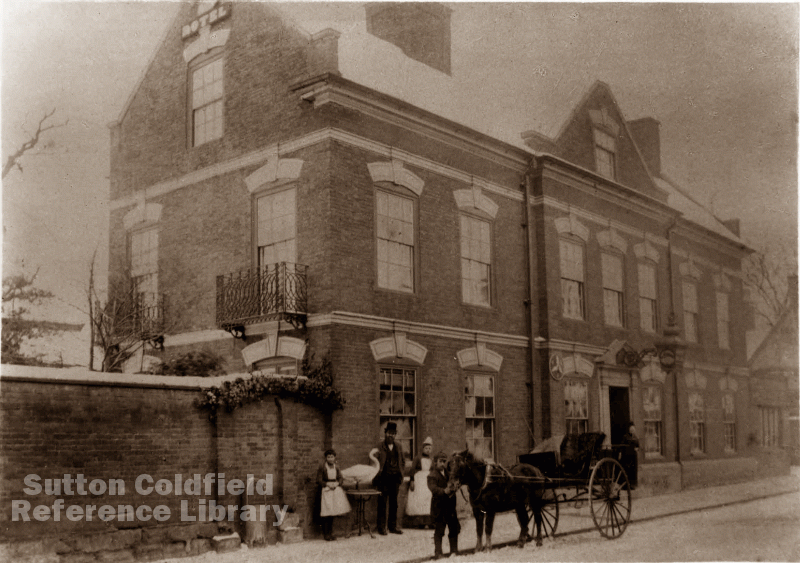The house in High Street which was demolished to make way for the Midland railway line in the 1870s had been home to the five Holbeche sisters for over forty years. On the opposite side of the road is the Royal Hotel, but it was not a hotel in the 1840s, when it was used for its original purpose - as a town house for gentry.
In her Diary, Sarah Holbeche notes approvingly “October 29th 1847. Mr. and Mrs. Grundy came to Mrs. Willoughby’s house”, so the tone of the neighbourhood was preserved. But on November 2nd 1859 the new tenant did not meet with approval “Opposite house taken by Giles and forthwith appeared emblazoned “Railway Hotel” before the railway itself was a fact” (the Sutton Branch of the LNWR opened in 1862).
William Giles must have made a success of the hotel, as Sarah Holbeche complains about the work on the extension being built over the former gardens. This was in 1869, when the hotel had been renamed “The Swan”, and the new buildings extended down to the new road (King Edward Square) leading to the palatial Royal Hotel. William Giles’ Swan Inn appears in the 1872 Directory of Warwickshire, as does another Swan public house, also in High Street, but this was on the other side of the road above Moat House.
In 1880 the proprietor, R. B. Monstevens, advertised the Swan as a family and commercial hotel and posting house, with billiards and good stabling. The directory lists it as a hotel, while the other Swan, known locally as “the top Swan”, is listed as a public house named the White Swan. By this time the large yard at the rear of the hotel served as the town’s cattle market (Sutton was still an agricultural town), with the sheep pens on the opposite side of the railway.
The Swan continued to flourish, with a further addition, the Assembly Rooms (recently refurbished) hosting events such as balls concerts and public lectures. Meanwhile the grandiose Royal Hotel in King Edward Square had failed and been converted into a sanatorium, so in 1900 the Swan was able to take over the name “Royal Hotel” which it has had ever since.
